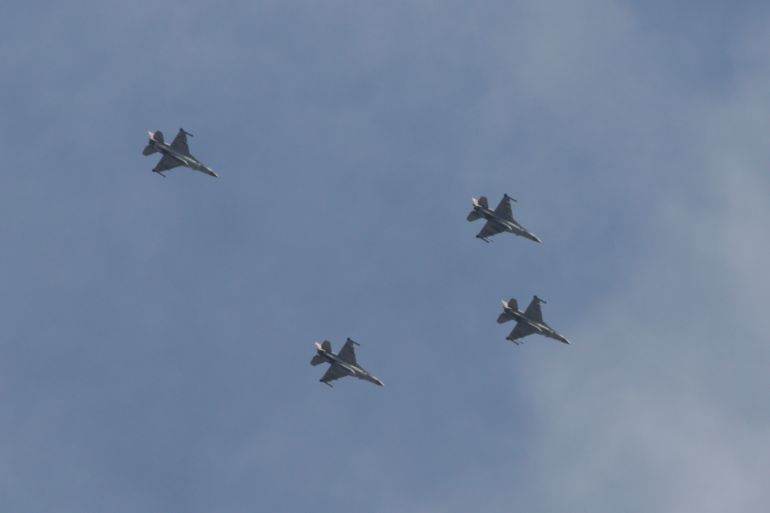Hezbollah will retaliate to any Israeli attacks, Nasrallah warns
Hezbollah leader’s statement follows the first exchange of fire between Israel and the Lebanese group in years.

The head of Lebanon’s Hezbollah movement, Hassan Nasrallah, has promised a “suitable and proportionate” response to any Israeli air strikes on Lebanon after a flare-up at the border this week.
Israel carried out its first air raids on Lebanese soil in years on Thursday, prompting Hezbollah to fire rockets back at Israel the following day.
Keep reading
list of 4 itemsLebanon police, protesters clash on Beirut blast anniversary
Here is why the EU should sanction Lebanon’s bankers
Israeli artillery shells Lebanon after rockets fired over border
“Our response was linked to the Israeli strikes that occurred in south Lebanon for the first time in 15 years,” Nasrallah said on Saturday in a televised speech ahead of the anniversary of the end of the last war with Israel in 2006.
“We wanted to tell the enemy … that any air strike by the Israeli air force on Lebanon will inevitably draw a response, though in a suitable and proportionate way, because we want to serve the purpose of protecting our country,” he added.
Nasrallah described the air attacks this week as a “very dangerous development”, but said Hezbollah did not want war.
“We are not looking for war and we do not want to head towards war, but we are ready for it” if necessary, he said, echoing similar comments by Israel this week.
Before Thursday, Israel’s last air strikes on Lebanon dated back to 2014, when warplanes struck territory near the Syrian border.
Hezbollah’s volley of rockets at Israeli positions on Friday morning prompted retaliatory shelling from Israel, prompting United Nations peacekeepers to warn of “a very dangerous situation”.
But Israel then said it did “not wish to escalate to a full war”.
The United States on Friday urged Lebanon’s government to prevent Hezbollah from firing rockets into Israel.
The 33-day conflict in the summer of 2006 killed 1,200 people in Lebanon, mostly civilians, and 160 Israelis, mostly soldiers.
It ended with a UN-backed ceasefire on August 14, 2006 that saw the Lebanese army deploy along border areas.
Hezbollah is the only side not to have disarmed after Lebanon’s 1975-1990 civil war.
It has long been targeted by US sanctions and blacklisted as a “terrorist” organisation, but the Shia group is also a powerful political player, with seats in Lebanon’s parliament.